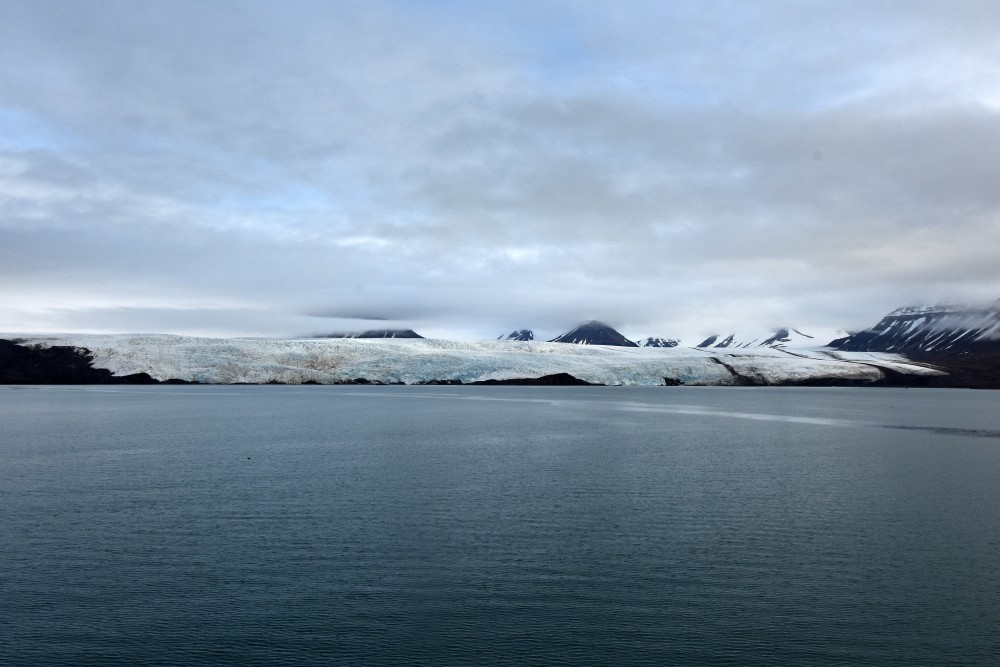The Arctic Ocean urgently needs environmental protections, says WWF Arctic head
"As a scientist I feel fairly pessimistic about the Arctic at the moment."

Environmental advocates warned that the Arctic Ocean needs further protections, and that it is critical they those are put in place soon.
There is dramatic urgency in this matter, says Peter Winsor, Arctic program director at the WWF, who participated in last week’s Arctic Frontiers conference in Tromsø, Norway.
“When I started to study the Arctic 20 years ago it was a completely different Arctic,” he said in a session on ocean health and blue growth. “Everything is changing now.”
The environmentalist, who is also an oceanography professor, made clear that “urgency is paramount.”
“Ten to 20 years — that is the timescale that is pushing the Arctic into a completely new state,” he said. “The Arctic is warming and losing sea ice, it is an unprecedented change and the way we deal with that is a big challenge.”
Winsor called for precautionary measures, and praised the international agreement signed in 2018 on unregulated fishing in the Central Arctic Ocean.
“The Arctic Ocean is already a stressed ecosystem and it is being stressed even more now with climate change. If we are going to develop a sustainable blue economy we first need to think about ecosystem,” he said and made clear that bigger parts of the Arctic must be protected.
“As a scientist I feel fairly pessimistic about the Arctic at the moment,” he admitted.
In its report on Blue Economy from 2018, the WWF makes clear that a new open ocean is in the making and that a pan-Arctic, ecologically coherent network of Marine Protected Areas should be created. Many of the proposed measures are discussed also in the Arctic Council’s PAME working group.
Winsor challenged the Norwegian government, and said that Norway has protected less than 1 percent of its Arctic waters.
“The international target for protection of the Arctic Ocean is 10 percent, while Norway as protected only less than 1 percent. There is a disparity here,” he said and nodded to Vidar Helgesen, the Norwegian Special Representative for the Ocean.
He also made clear that Russia has been far more active in protecting its part of the Arctic.
[Norway wants to fight plastic pollution in the Arctic — and drill for more oil]
Helgesen, who is the former Norwegian minister of climate and environment, was put under pressure also by moderator and BBC journalist Stephen Sackur. «Are you in favor for full steam ahead for oil exploration in a Barents Sea? Do you want responsible economic exploitation or outright protection?” Sackur asked and Helgensen hesitantly admitted that he “supports a policy of exploitation.”
“But we are in a transformation and we know that fossil fuels will be phased out, but we know that it is not going to happen overnight,” Helgensen added.
According to the Special Representative for the Ocean, “it is way more important to manage well the 100 percent of the ocean than to fully protect 10 percent of it.”
The Norwegian double policy is not well perceived by environmentalists.
“I would not say that the Norwegians are hypocritical; they are doing a lot of good things. But I am concerned that they still are pushing for development of non-renewable energy and extraction in Arctic,” Winsor said. “There is no way we can reach the IPCC goals of 1.5 degrees if we continue extracting oil,” he underlined.
He is not pessimistic about the situation. “The Arctic is still primarily undeveloped and we still have a chance to get it right,” he said. “For a number of reasons. For the people who live there for the animal species that live there and are stressed under effects of climate change.”